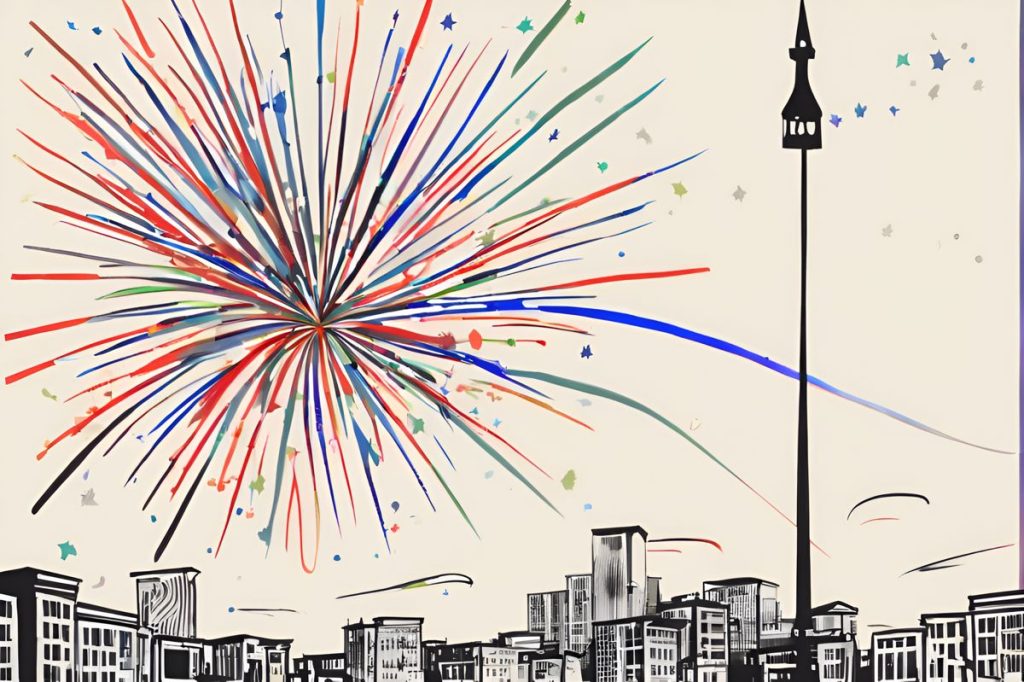Firework licenses have been suspended indefinitely due to heightened risks of fire in hot and dry weather conditions, following incidents of fireworks causing wildfires and threatening public safety. The ban aims to prevent ecological damage and ensure community well-being, prompting consideration of alternative, safer celebration methods like drone light shows and laser displays.
Why have firework licenses been suspended indefinitely?
Firework licenses have been suspended indefinitely due to heightened risks of fire in hot and dry weather conditions. This response follows incidents of fireworks causing wildfires, threatening wildlife, ecosystems, and public safety. The ban aims to prevent ecological damage and ensure community well-being.
Immediate Ban on Fireworks
In a swift response to the recent spate of hot and dry conditions, authorities have announced a blanket suspension on all firework licenses. Concerns have escalated following a series of incidents that culminated in a perilous situation, prompting an unequivocal halt to the issuance of new permits and the revocation of existing ones. A representative from the mines and quarries service communicated the decisive move, indicating that the current weather patterns render any fireworks-related activities untenable.
Agriculture Minister Maria Panayiotou spearheaded the call for this stringent measure. Her appeal on Thursday was a direct reaction to a wildfire that raged in the Ha Potami region, close to Kouklia village. This fire, sparked by fireworks set off by a licensed individual, necessitated almost four hours of firefighting efforts to contain. The aftermath was sobering, with a swathe of grassland and wild vegetation—stretching across four to five hectares—scarred by the flames.
Fire Hazards and Public Safety
The incident that prompted the ban is not an isolated one. Worldwide, fireworks are known to be a common cause of both urban and rural fires, particularly in hot, dry weather conditions. The combustible materials used in fireworks can easily ignite surrounding vegetation. These fires can quickly escalate, becoming a threat to wildlife, ecosystems, and human settlements. The ecological impact of such events can be profound, disrupting habitats and causing long-term damage to the natural landscape.
The risks associated with fireworks go beyond unintentional fires. The loud noises and bright flashes can also distress both domestic and wild animals, leading to disorientation and injury. As a result, municipalities and governments often face the complex task of balancing the cultural and celebratory significance of fireworks against the potential dangers they pose to the environment and public safety.
Regulatory Measures and Public Cooperation
Enforcement of the firework suspension will require concerted efforts from both the authorities and the public. Regulations around fireworks often include measures such as designated launch sites, professional handling, and strict timescales for displays. However, during periods of increased fire risk, these measures may not suffice, thus necessitating a complete prohibition.
Public cooperation is critical during such bans. Communities are urged to comply with the restrictions and to report any violations to the authorities. Public awareness campaigns can play a significant role in educating citizens about the dangers of fireworks, especially during precarious weather conditions. These efforts aim to foster a culture of safety and responsibility, ensuring the well-being of both the environment and the population.
Looking Ahead to Safer Celebrations
As the suspension of fireworks licenses takes effect, attention turns to alternative methods for celebrating occasions without compromising safety. Innovations in drone light shows and laser displays offer visually stunning experiences, and they are increasingly being seen as viable, eco-friendly alternatives to traditional pyrotechnics. These modern technologies eliminate the risk of fire, reduce noise pollution, and provide a safe space for everyone to enjoy public festivities.
With the advance of such technologies and a heightened awareness of the risks involved in firework displays, the future of public celebrations may well be reshaped. While fireworks have long been a staple of festive events, the priority of safety, especially under adverse weather conditions, will likely guide the evolution of public displays and the regulatory landscape surrounding them.
Why have firework licenses been suspended indefinitely?
Firework licenses have been suspended indefinitely due to heightened risks of fire in hot and dry weather conditions. This response follows incidents of fireworks causing wildfires, threatening wildlife, ecosystems, and public safety. The ban aims to prevent ecological damage and ensure community well-being.
What led to the immediate ban on fireworks?
The immediate ban on fireworks was prompted by a recent wildfire in the Ha Potami region, sparked by fireworks set off by a licensed individual. The incident necessitated almost four hours of firefighting efforts to contain and resulted in significant damage to grassland and wild vegetation. The ban is a response to concerns over the risks posed by fireworks in hot and dry weather conditions.
How do fireworks pose a risk to public safety and the environment?
Worldwide, fireworks are known to be a common cause of urban and rural fires, particularly in hot, dry weather conditions. The combustible materials used in fireworks can easily ignite surrounding vegetation, posing a threat to wildlife, ecosystems, and human settlements. Additionally, fireworks can distress animals and disrupt habitats, leading to long-term damage to the environment.
What regulatory measures and public cooperation are needed during the firework suspension?
Enforcement of the firework suspension will require efforts from both authorities and the public. Regulations around fireworks typically include designated launch sites, professional handling, and strict display times. Public cooperation is essential, and communities are urged to comply with restrictions, report violations, and participate in public awareness campaigns to educate citizens about the dangers of fireworks.

